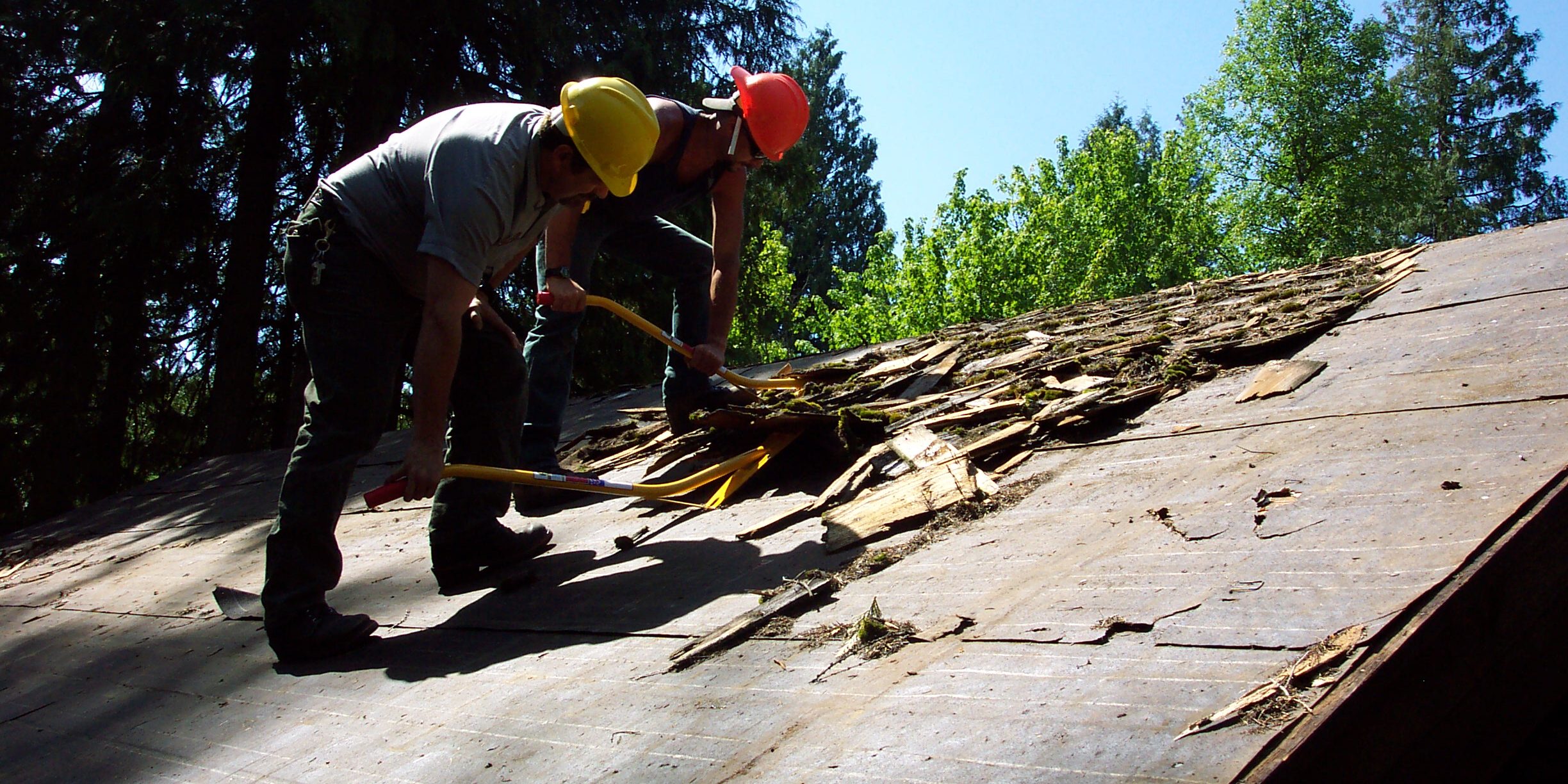Having a bad roof can be a significant obstacle in getting homeowners insurance. Even if your home is in excellent condition, a bad roof can make finding an insurer willing to cover your property challenging. This can leave you feeling powerless and frustrated as you try to find coverage for your home. Fortunately, there are ways that you can get homeowners insurance even with a bad roof.

How to Get Homeowners Insurance With a Bad Roof without repair?
Yes, you can get homeowners insurance from specialized insurance companies with a bad roof without repairing it. However, your insurance premium will be much higher and will be calculated using Actual Cash Value (ACV) formula.
Specialized insurance companies that insure homes with bad roofs generally offer coverage at a higher cost than traditional insurance companies. This is because the risk of damage or loss is higher, so the cost of insuring the property is also higher.
These specialized insurance companies may also use a different formula to calculate the cost. For example, instead of a flat rate based on the home’s value, they may calculate the cost based on the age and condition of the roof.
They may use the Actual Cash Value (ACV) formula. This formula takes into account the age of the roof and its condition and calculates the replacement value of the roof minus its depreciation. For example, if your roof is 10 years old and is damaged in a windstorm, the insurer will calculate the replacement cost based on its current value, considering its age and condition. They will then deduct the depreciation for the 10 years of use and offer to reimburse you for the remaining value.
The formula used to calculate the ACV of a roof can vary between insurance companies and may take into account factors such as the roofing material, the quality of the installation, and the local climate.
Overall, specialized insurance companies that offer coverage for bad roofs can provide an option for homeowners who may otherwise struggle to find coverage. However, it’s essential to carefully review the policy’s terms and conditions and ensure you understand the cost and coverage before signing on.
The most crucial step is, to be honest about the condition of your roof. In many cases, insurers will still be willing to provide coverage if they know the issue. By being upfront about any damage or deficiencies in your roof, you’ll have better chances of finding an insurer who can provide coverage for your home. Some insurers may even allow you to purchase additional coverage or endorsements that will give extra protection for specific areas of your home that may be at risk due to the roof’s condition.
When looking for an insurer, consider getting quotes from several different companies. Different providers have other criteria when assessing risk, so shopping around and comparing policies is essential until you find one that fits your needs and budget. Additionally, investigate any potential discounts or incentives that may be available with various procedures, as these could help reduce the cost of coverage and make it more affordable.
It would help if you also considered having a professional inspect and assess the state of your roof before applying for homeowners insurance. A certified inspector will be able to identify any current issues or potential problems that may need attention to qualify for certain types of insurance coverage. Having this assessment done ahead of time may also save you money by alerting you to repairs required before applying for a policy which will result in lower premiums and providing evidence that is needed for certain types of claims later on down the road.
How to Get Homeowners Insurance With a Bad Roof after repair?
Getting homeowners insurance with a bad roof can be challenging but not impossible. Here are some steps you can take to increase your chances of getting coverage:
- Get your roof inspected: Before applying for insurance, have a professional roofing contractor inspect your roof and provide a detailed report of its condition. This report can demonstrate to insurance companies that you are taking steps to maintain your property.
- Make repairs: If the inspection report identifies any issues with your roof, make repairs as soon as possible. This can show insurers that you are proactive in maintaining your home.
- Provide documentation: Provide documentation of any repairs or upgrades you have made to your roof. This can demonstrate to insurers that you are committed to maintaining your home and reducing risk.
- Shop around: Different insurance companies have different policies regarding insuring homes with bad roofs. Shop around and compare quotes from multiple insurers to find the best coverage and rates for your situation.
- Consider a specialized insurer: Some insurance companies specialize in insuring homes with unique or high-risk characteristics, including dwellings with bad roofs. Consider contacting a specialized insurer to see if they can offer coverage that meets your needs.
Remember, it’s essential, to be honest about the condition of your roof when applying for homeowners insurance. Failing to disclose known issues could result in your coverage being denied or canceled, leaving you financially vulnerable in the event of a loss.
Overall, specialized insurance companies that offer coverage for bad roofs can provide an option for homeowners who may otherwise struggle to find coverage. However, it’s essential to carefully review the policy’s terms and conditions and ensure you understand the cost and coverage before signing on.
Finally, consider improving or repairing your roof before applying for homeowners insurance. The presence of minor issues such as worn shingles or cracked flashing can significantly decrease the cost associated with covering an older home since they are more straightforward and less expensive fixes than more severe issues like water damage or structural failure resulting from age-related wear and tear. Making these improvements before shopping around for coverage could result in significantly reduced premiums over time and make getting homeowners insurance much easier despite having a lousy roof initially.
